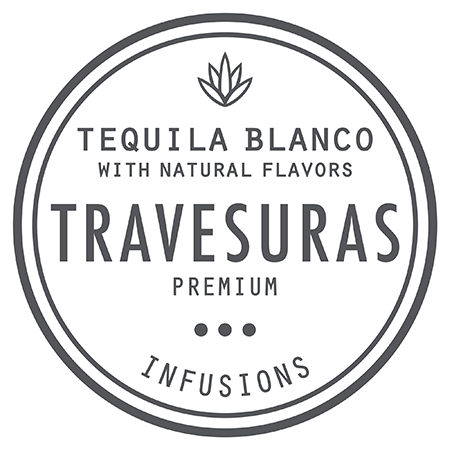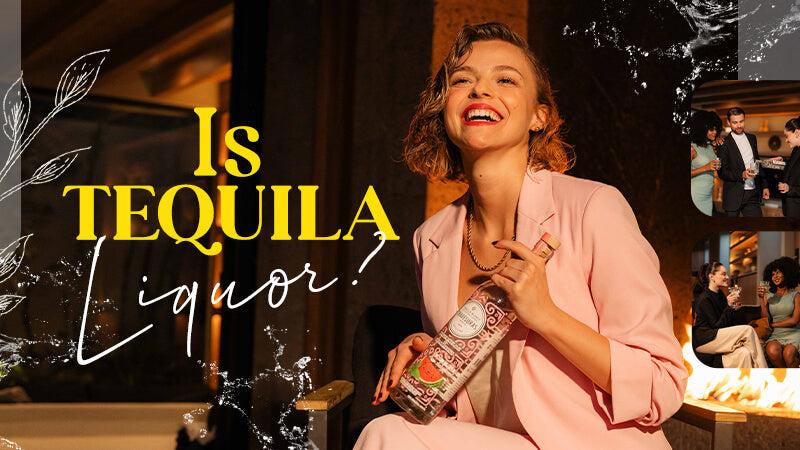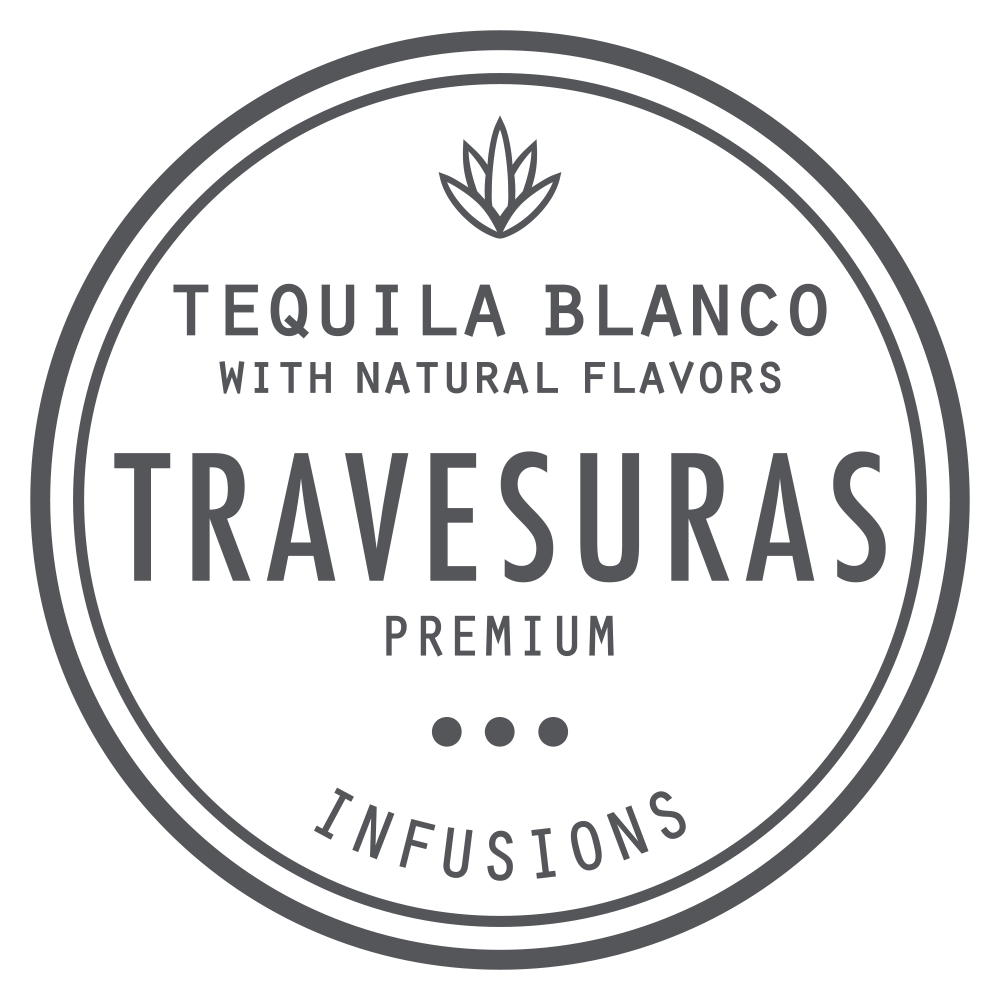There’s a question tequila fans ask a lot — usually after the third shot at a party. Is tequila liquor? Here’s the short answer: tequila is both liquor and alcohol. It is an alcoholic beverage (it contains ethanol) and it belongs to the liquor (or distilled spirits) family. The longer answer? Pour a glass, sit back, and let the story of agave, fire, and chemistry explain itself.
Meaning of “Alcohol”
“Alcohol” is a broad term. Chemically, it usually refers to ethanol — the psychoactive molecule in drinks that gets the party started. Colloquially, “alcohol” covers beer, wine, cider, mead, and spirits. So, when someone asks whether tequila is alcohol, the correct reply is: absolutely — it’s alcohol, in liquid form, intended for drinking.
Meaning of “Liquor”
Liquor — also called spirit — names a category of alcoholic drinks made by distillation instead of fermentation. Distillation concentrates alcohol and strips out some impurities, producing higher-proof beverages. Whiskey, vodka, rum, gin, brandy, and tequila all fall under the liquor/spirit umbrella. So, tequila is liquor because it is distilled.
The Production of Tequila: Why It’s Called a Spirit
Tequila starts with the blue agave plant. The heart of the plant (piña) is cooked to release sugars, which are then fermented into a low-alcohol wash. After that, the wash is distilled. Distillation raises the alcohol content and refines the flavors; aging in barrels can add color and complexity. Because of that distillation step, tequila is a distilled spirit — in other words, liquor. At Tequila Travesuras, we don’t believe in aging. Instead, we create infused tequila! Want to learn more? Check out our products here.
Legal and Cultural Identity: The Special Status of Tequila
Tequila is more than a generic spirit. It has a protected designation: only certain regions of Mexico — most notably Jalisco and specified municipalities in nearby states — may legally produce true “tequila.” Labels also distinguish 100% agave tequila from “mixto” (a product made with at least 51% agave sugars, with the rest from other fermentable sugars). This legal framework shapes quality, tradition, and the flavors in the bottle.
Common Tequila Categories: A Quick Guide

• Blanco (silver): Unaged or briefly rested — bright, pure agave flavor.
• Reposado: Aged a few months in oak — smoother, with light oak notes.
• Añejo: Aged longer — richer, with caramel and spice from the barrel.
• Extra Añejo: Extended aging — deep, complex, and can be sipped neat.
• Infusions: Blanco tequila infused with 100% natural flavors and no added sugar.
Available only at Tequila Travesuras – Spicy Mango Tequila and other infusions can be sipped neat or used to make cocktails like Cantarito, Ranch Rose, Blue Lagoon Margarita, Winter Tequila Sangria, and more.
Each type is still a liquor; the aging affects mouthfeel and aromatics, not the fact of distillation.
Alcohol Content: What to Expect in the Bottle
Is tequila liquor? Of course it is, considering that most tequilas are bottled in the 35–50% ABV range, with many mainstream offerings at 40% ABV (80 proof). Distillers can tweak proofs during production and blending, and some specialty or craft tequilas arrive at different strengths. Regardless, the ABV tells the real “alcohol” strength — tequila’s punch depends on it.
Tequila vs. Other Spirits: What Makes it Unique

Tequila’s raw material (blue agave) gives it a vegetal, sometimes peppery, sometimes fruity profile that sets it apart from grain-based whiskeys or sugarcane-derived rums. Compare tequila and mezcal: both are agave-based, but mezcal often features smoky notes from roasted agave hearts and allows many agave species. The production choices create very different liquors.
Common Myths Clarified
• Myth: Tequila isn’t a liquor because it’s used in cocktails more than whiskey. False — usage doesn’t change the category.
• Myth: “Alcohol” and “liquor” are interchangeable. Sort of — liquor is a subset of alcoholic beverages; “alcohol” can mean the molecule or any drink that contains it.
• Myth: All tequila makes people ‘more drunk’ than other liquors. Not true — intoxication depends on ABV, quantity, and pace, not the spirit’s name.
How to Enjoy Tequila Responsibly and Deliciously
1. Sipping
Many aged tequilas shine neat in a tulip glass — enjoy the aroma, take small sips, and pace it.
2. Mixing
Blanco tequilas are superb for cocktails — think margaritas, palomas, and highball twists.
3. Food pairing
Tequila pairs incredibly well with citrus, grilled seafood, and sharp cheeses.
4. Respect the proof
Treat tequila like any spirit — hydrate, mind portions, and never drink and drive.
Why the Distinction Matters and Why it Usually Doesn’t
Understanding that tequila is a distilled spirit helps with choices: pick Blanco for bright cocktails, reposado for balance, or añejo for contemplative sipping. But for most drinkers, the tequila-vs-alcohol/tequila-vs-liquor debate is academic — what matters is taste, quality, and context.
The Simple Truth Laid Bare
So, is tequila liquor? It sure is, and it’s an alcohol, too. It is a distilled alcoholic beverage born from blue agave and shaped by tradition, law, and craft. Whether enjoyed neat, on the rocks, or in a vibrant cocktail, tequila sits squarely in the spirits family — with its own voice and plenty of reasons to listen.
Curious about flavored tequila? Tequila Travesuras all the stories and products you desire. Explore options that keep authentic agave at their core while offering playful flavor twists — just remember, the same rules of moderation and quality always apply. Salud!
Must Read: Can You Use Tequila for Cooking Oil? The Ultimate Guide to Flavorful Cooking
FAQs
Q1. Is tequila gluten-free?
A1. Yes. Tequila is naturally gluten-free since it’s made from 100% blue agave. Even people with gluten sensitivities can safely enjoy it, provided it’s pure tequila and not mixed with additives.
Q2. Does tequila have more calories than other liquors?
A2. Not necessarily. A standard shot of tequila has about 64 calories, similar to vodka or whiskey. The calorie load often comes from mixers, not the spirit itself.
Q3. How is tequila different from mezcal?
A3. Tequila is made only from blue agave and primarily in Jalisco. Mezcal can be made from multiple agave species and is often smoky due to underground roasting methods.
Q4. Can tequila go bad if unopened?
A4. Unopened tequila has an indefinite shelf life if stored properly. Once opened, it won’t spoil but can lose flavor and aroma over time due to oxidation.
Q5. Why do some tequilas cause hangovers more than others?
A5. Quality matters. Cheap mixto tequilas often contain added sugars and impurities that worsen hangovers. Pure 100% agave tequila, consumed responsibly, usually leads to a cleaner drinking experience.
- View: 86
- Categories: News


